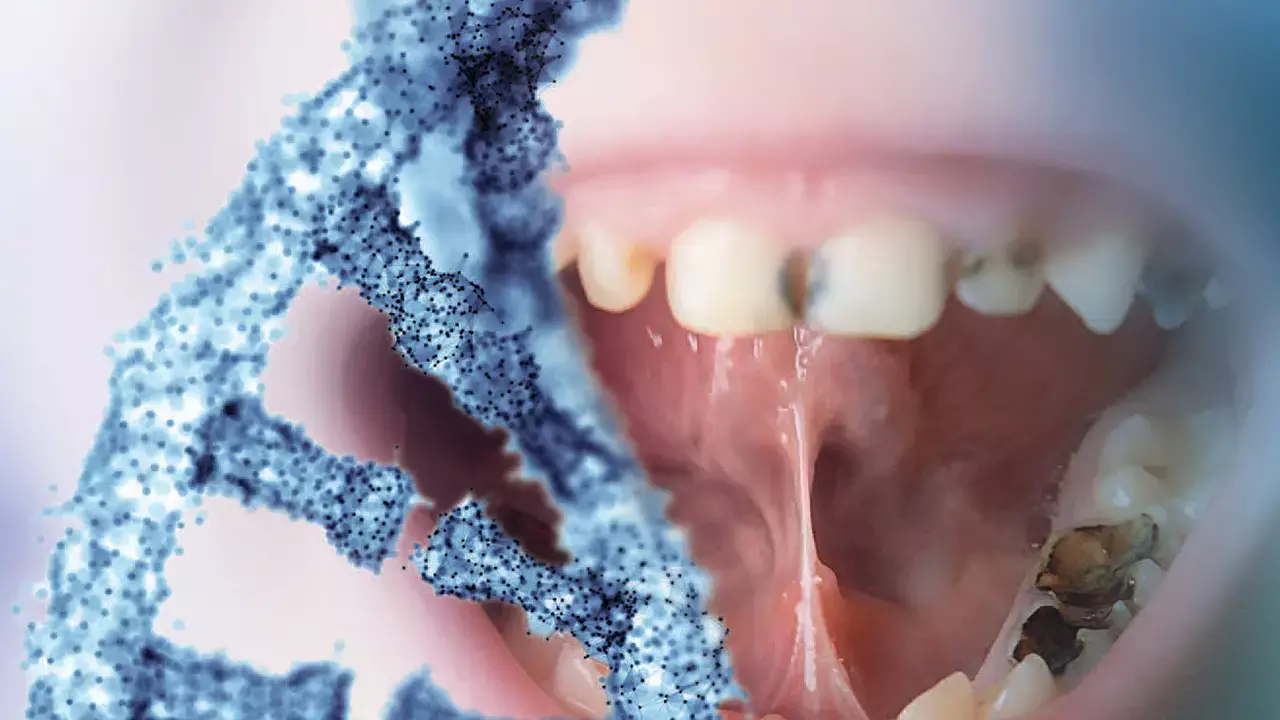- Home
- Medical news & Guidelines
- Anesthesiology
- Cardiology and CTVS
- Critical Care
- Dentistry
- Dermatology
- Diabetes and Endocrinology
- ENT
- Gastroenterology
- Medicine
- Nephrology
- Neurology
- Obstretics-Gynaecology
- Oncology
- Ophthalmology
- Orthopaedics
- Pediatrics-Neonatology
- Psychiatry
- Pulmonology
- Radiology
- Surgery
- Urology
- Laboratory Medicine
- Diet
- Nursing
- Paramedical
- Physiotherapy
- Health news
- Fact Check
- Bone Health Fact Check
- Brain Health Fact Check
- Cancer Related Fact Check
- Child Care Fact Check
- Dental and oral health fact check
- Diabetes and metabolic health fact check
- Diet and Nutrition Fact Check
- Eye and ENT Care Fact Check
- Fitness fact check
- Gut health fact check
- Heart health fact check
- Kidney health fact check
- Medical education fact check
- Men's health fact check
- Respiratory fact check
- Skin and hair care fact check
- Vaccine and Immunization fact check
- Women's health fact check
- AYUSH
- State News
- Andaman and Nicobar Islands
- Andhra Pradesh
- Arunachal Pradesh
- Assam
- Bihar
- Chandigarh
- Chattisgarh
- Dadra and Nagar Haveli
- Daman and Diu
- Delhi
- Goa
- Gujarat
- Haryana
- Himachal Pradesh
- Jammu & Kashmir
- Jharkhand
- Karnataka
- Kerala
- Ladakh
- Lakshadweep
- Madhya Pradesh
- Maharashtra
- Manipur
- Meghalaya
- Mizoram
- Nagaland
- Odisha
- Puducherry
- Punjab
- Rajasthan
- Sikkim
- Tamil Nadu
- Telangana
- Tripura
- Uttar Pradesh
- Uttrakhand
- West Bengal
- Medical Education
- Industry
Low evidence that dental caries has genetic predisposition

There is a Low evidence that dental caries has a genetic predisposition suggests a new study published in the Journal of Dentistry.
This review aimed to assess the agreement of dental caries experience between monozygotic (MZ) and dizygotic (DZ) twins.
This systematic review was performed by reviewers in the databases Embase, MEDLINE-PubMed, Scopus, Web of Science and manual searches and gray literature Google Scholar® and Opengray. Observational studies that evaluated dental caries in twins were included. The risk of bias was analyzed using the Joanna Briggs checklist. Meta-analyses were performed to assess the pooled Odds Ratio to estimate the agreement values of dental caries experience and DMF index between pairs of twins (p < 0.05). To assess the certainty of evidence, the GRADE scale was used.
2533 studies were identified, of which 19 were included in the qualitative analysis, six in the quantitative synthesis, with two meta-analyses being carried out. Association between genetics and the development of the disease was observed in most studies. In the risk of bias analysis, 47.4% had moderate risk. Higher agreement of dental caries experience was observed in MZ twins than DZ in both dentitions (OR: 5.94; 95% CI: 2.00–17.57). However, there was no difference between the MZ and DZ twin groups in the analysis comparing DMF index agreement (OR: 2.86; 95%CI: 0.25–32.79). The certainty of evidence was considered low and very low for all studies included in meta-analyses.
With very low certainty of the evidence, the genetic factor seems to influence the agreement of the caries experience.
Understanding the genetic influence on the disease has the potential to contribute to the development of studies that may use biotechnologies for prevention and treatment as well as guide future research involving gene therapies aiming to prevent the occurrence of dental caries.
Reference:
Angela Maria Cardoso dos Anjos, Marina de Deus Moura de Lima, Francisco Wilker Mustafa Gomes Muniz, Cacilda Castelo Branco Lima, Lúcia de Fátima Almeida de Deus Moura, Cassiano Kuchenbecker Rösing, Marcoeli Silva de Moura,
Is there an association between dental caries and genetics? Systematic review and meta-analysis of studies with twins. Journal of Dentistry, Volume 135, 2023, 104586,
ISSN 0300-5712, https://doi.org/10.1016/j.jdent.2023.104586.
(https://www.sciencedirect.com/science/article/pii/S0300571223001720)
Keywords:
Low evidence, dental caries, genetic predisposition, Journal of Dentistry, Angela Maria Cardoso dos Anjos, Marina de Deus Moura de Lima, Francisco Wilker Mustafa Gomes Muniz, Cacilda Castelo Branco Lima, Lúcia de Fátima Almeida de Deus Moura, Cassiano Kuchenbecker Rösing, Marcoeli Silva de Moura, Dental caries; Twins; Genetics; Diseases in Twins; Evidence-Based Dentistry
Dr. Shravani Dali has completed her BDS from Pravara institute of medical sciences, loni. Following which she extensively worked in the healthcare sector for 2+ years. She has been actively involved in writing blogs in field of health and wellness. Currently she is pursuing her Masters of public health-health administration from Tata institute of social sciences. She can be contacted at editorial@medicaldialogues.in.
Dr Kamal Kant Kohli-MBBS, DTCD- a chest specialist with more than 30 years of practice and a flair for writing clinical articles, Dr Kamal Kant Kohli joined Medical Dialogues as a Chief Editor of Medical News. Besides writing articles, as an editor, he proofreads and verifies all the medical content published on Medical Dialogues including those coming from journals, studies,medical conferences,guidelines etc. Email: drkohli@medicaldialogues.in. Contact no. 011-43720751


